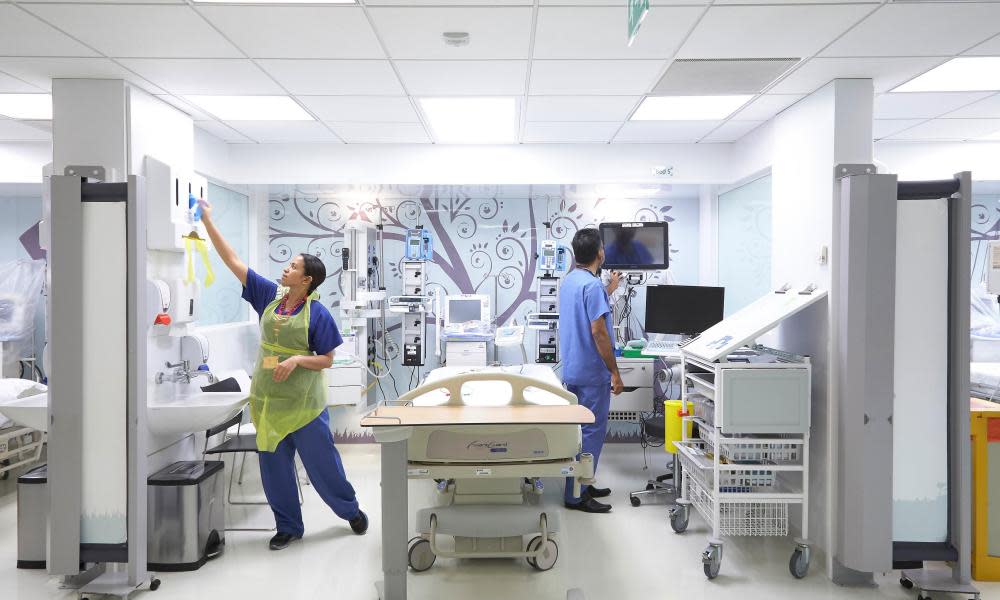Record rise in people using private healthcare amid NHS frustration

Record numbers of people are paying for private healthcare, spending up to £3,200 on having a cataract removed and £15,075 on a new hip, amid growing frustration at NHS waiting lists.
Across the UK last year 272,000 people used their own funds to cover the cost of having an operation or diagnostic procedure at a private hospital. That was up from 262,000 the year before and a sharp rise on the 199,000 who did so in 2019, the year before the Covid pandemic struck.
Private hospitals also set another record during 2022 by treating 820,000 inpatients and day case patients overall – more than in any previous year, according to figures from the Private Healthcare Information Network (PHIN), a specialist data collection organisation that tracks activity in the sector.
Related: Patients in England to be asked to use NHS app to book private hospitals
Besides the 272,000 who paid themselves, the other 547,000 had their treatment using a private medical insurance policy – the highest number since 2019.
The data prompted speculation that the NHS’s inability to meet waiting time targets could make paying for private healthcare “a new normal” in Britain, despite state-funded care being free.
Ian Gargan, PHIN’s chief executive, said “long NHS waiting lists and uncertainty around how long you’ll be waiting” were driving the surge in private healthcare. “For some people, paying for their own treatment is more cost-effective than not being able to work while they await a new knee or hip replacement, for instance.”
The top five most common procedures private hospitals carried out last year were cataract surgery (76,000), chemotherapy (66,000), an upper gastrointestinal diagnostic test (38,000), colonoscopy to test for bowel cancer (31,000) and a new hip (30,000).
The figures do not include NHS patients who had private hospital care paid for by the health service.
Keep Our NHS Public said it was “shameful” that more and more people were feeling obliged to use private healthcare as a result of the government neglecting the NHS.
Dr John Puntis, the group co-chair, said: “It should come as no surprise that when the government has run the NHS down to a state of near-collapse, more people are opting to go private.
“Private healthcare providers are making hay as those people who can afford health insurance or scrape the necessary funds together for treatment choose the independent sector. It is absolutely shameful that in 2023, in the sixth richest world economy, we can’t diagnose and treat life-threatening illnesses such as cancer in a timely fashion,” added Puntis, a retired consultant paediatrician.
Brett Hill, an analyst at the Broadstone consultancy, said: “The incredible pressures on the NHS including record waiting lists, deteriorating public health and pay disputes are undoubtedly driving greater demand within the private healthcare sector.”
“In the short to medium term there appears little prospect of the strains on the public health system easing and we are likely to see continued strong demand for private healthcare in what could become a ‘new normal’ for this country.”
The rise in private healthcare activity is also due to the fact that growing numbers of employers are taking out private health insurance policies to help their staff, Hill added.
Rishi Sunak will announce on Thursday plans to expand the role of the NHS app to prompt more patients on the waiting list to exercise their right to choose in which NHS or private hospital they are treated in a move to cut the record 7.3 million hospital care backlog.

 Yahoo News
Yahoo News 
